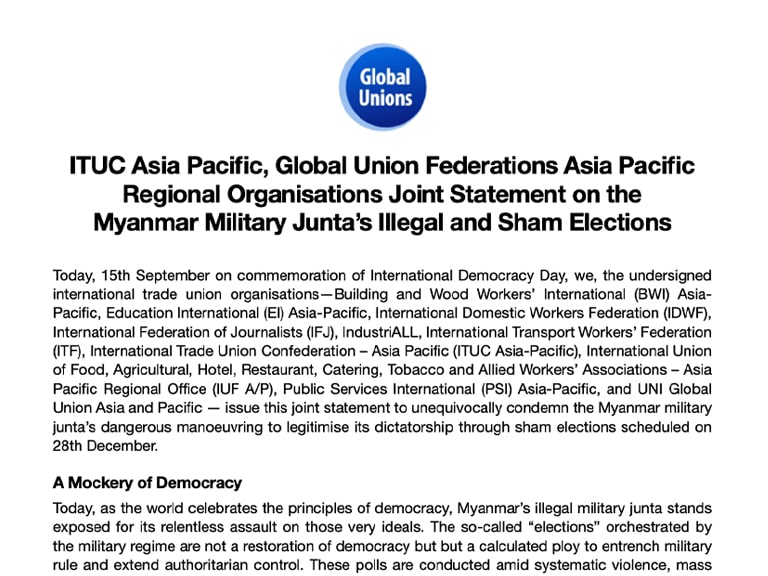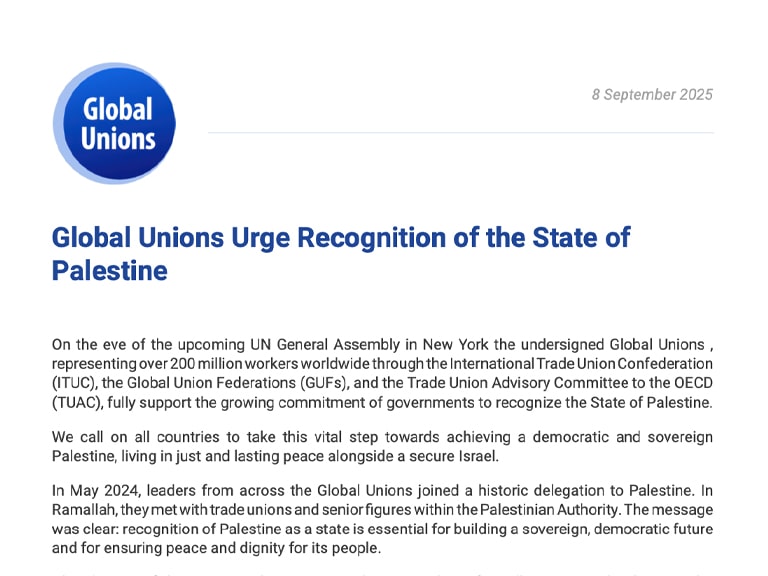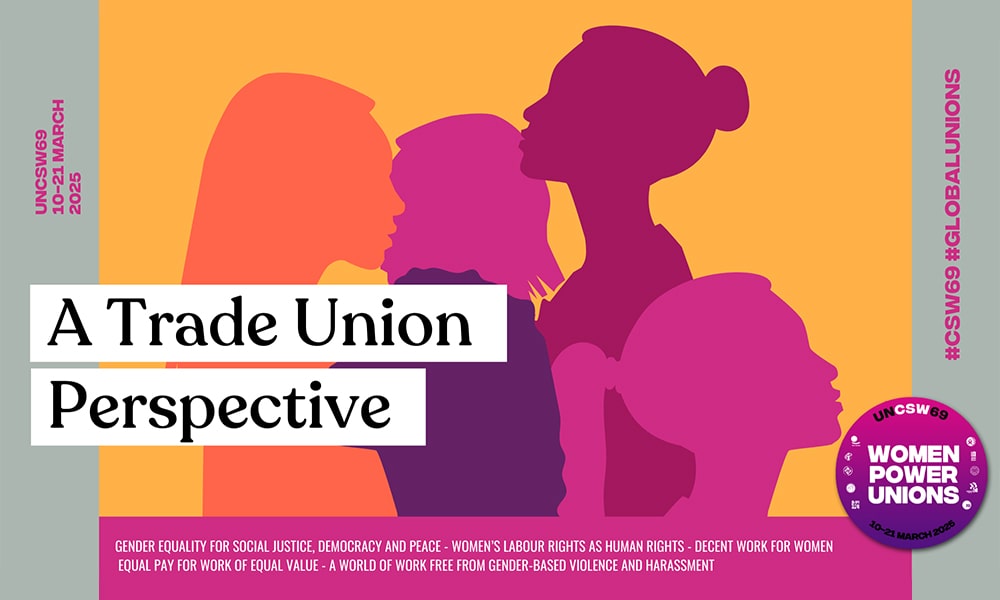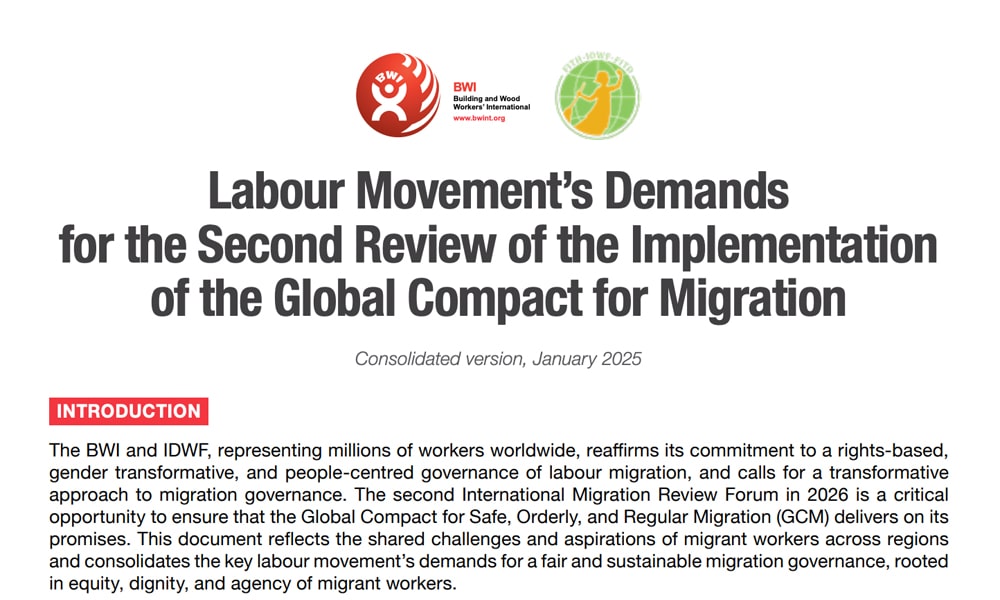There is #NoExcuse
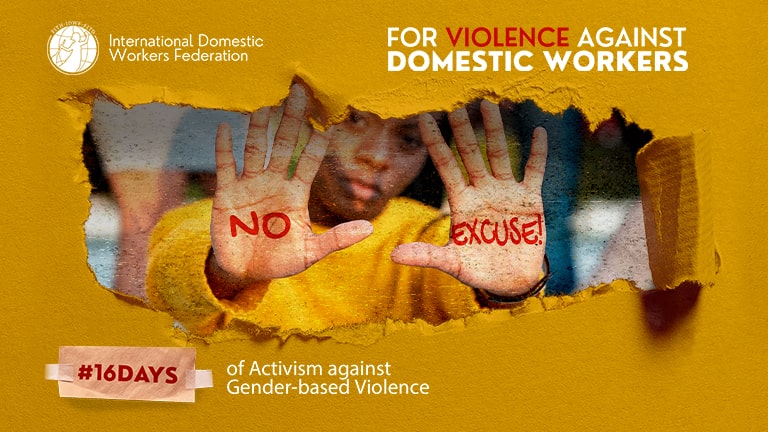
Seventy five million domestic workers worldwide provide essential services that keep households working. Yet, many domestic workers continue to work in vulnerable situations and are disproportionately affected by violence and harassment in the workplace or face discrimination based on gender, caste or class, ethnicity, skin color, nationality or migratory status. Despite these challenges, the demand for domestic and care services is growing worldwide due to the increase in women working outside the home, the aging of populations, the increasing need for long-term care and the loss of extended family support.
Transformative policies are needed NOW
One in every 12 women workers globally is a domestic worker. Despite their essential role in economies and societies, 8 out of 10 domestic workers are informally employed, without access to social security and fundamental labor rights. Informality leads to precarious working conditions such as meager wages, irregular working hours, insufficient rest, and the absence of occupational health and safety measures, among other rights violations that undermine decent work.
The ILO Convention 189 on decent work for domestic workers was ratified by 36 countries. However, C189 is not enough, even alongside other international standards. Today, and throughout history, domestic workers are among the most vulnerable of all workers to violence and harassment. For decent work to become a reality for domestic workers, more ratifications and effective implementation are needed.
The ILO Convention190 (C190) recognizes the scope and scale of violence affecting all workers. However, regulations intended to protect workers have typically excluded the private home as a workplace. So, domestic workers too often experience diverse forms of gender-based violence in their employers’ homes due to the power imbalance that characterize their employment relationship, including physical, sexual, verbal, psychological, and economic violence.
The privacy of the workplace is a hindrance to eradicating violence against domestic workers, who perform their tasks in isolation and behind closed doors. This isolation also makes it difficult for workers to organize and create support networks, which is essential for their awareness-raising, support, and empowerment. For migrant workers, limitations on exercising freedom of association further exacerbate their vulnerability. Domestic workers’ organizations not only assist, accompany, and provide advice to victims of violence but also engage in advocacy, social dialogue, and collective bargaining, improving working conditions for the entire sector.
The historical lack of recognition and valorization of domestic work has become a cultural pattern in which the subordination of domestic workers and the power imbalance with their employers are naturalized. For many, domestic work is not considered work but a service that racialized women in predominantly white societies are obligated to provide by natural mandate and without any rights or compensation.
We shall be silent no more
The vulnerability of domestic workers and their dependence on employers make them, in most cases, not report abuses for multiple reasons. Sometimes, domestic workers do not recognize themselves as victims; other times, they are afraid of losing their jobs, being falsely accused, or being deported if they are migrant workers. Migrant workers and those working under live-in arrangements are the most dependent on their employers and, therefore, the most unprotected and affected by violence and harassment at the workplace.
As a sector facing many obstacles to accessing justice, reporting acts of violence is bleak and discouraging. Procedures are cumbersome, expensive, and mostly unsuccessful. More often than not, justice operators are not sensitized to the specific issues of domestic workers: racism and prejudices, as well as corruption, persist in justice systems worldwide. The availability of free and accessible special complaint mechanisms would ensure adequate investigation, appropriate prosecution of perpetrators, and fair redress for victims. In most cases, domestic workers do not have access to such channels or pathways.
If this combination of challenges was not visible enough, the COVID-19 crisis worsened and exposed it like never before. During the pandemic, domestic workers were among the most affected by violence and abuse at the workplace.
The International Domestic Workers Federation (IDWF) demands that solid measures be taken by governments and civil societies alike to ensure the respect and recognition of the human, labor, and women’s rights of domestic workers. The IDWF has been working to ensure that governments around the world adopt regulatory frameworks and public policies to protect domestic workers and ratify ILO Conventions 189 and 190, while providing support to domestic workers worldwide to unionize and address the systemic nature of the gender-based violence and its links to discriminatory laws and policies.
The IDWF calls on decision-makers to:
- Ratify and effectively implement ILO Conventions 189 and 190.
- Adopt laws and public policies aligned with both Conventions, developed with a gender perspective and considering the specificities of domestic work and the vulnerabilities of workers in the sector.
- Establish effective mechanisms for monitoring domestic work, which include inspection in private households, recognizing them as workplaces.
- Invest in policies that encourage the formalization of domestic work.
- Ensure the right of migrant domestic workers to legal protection, regardless of their migratory status and working conditions.
- Guarantee access to social protection for all domestic workers without exception (including migrant workers) as an essential element for achieving social justice.
- Invest in campaigns to prevent and combat violence against domestic workers, developed with the contribution of domestic workers organizations. Regularly conduct mappings and produce statistics on this issue and on the overall situation of the sector.
- Improve access to justice for domestic workers through agile and efficient mechanisms that ensure proper investigation of violence cases, appropriate punishment for perpetrators, and appropriate redress for victims.
- Ensure the right to unionizing and freedom of association for all domestic workers, including migrants.
- Foster social dialogue and collective bargaining, ensuring domestic workers’ representation and participation in all decision-making processes related to the sector.
- Support domestic workers’ organizations in training and awareness activities on violence and harassment at the workplace, as well as in providing victims with legal advice, psychological assistance, and financial aid.
- Invest in comprehensive care systems that place domestic workers at the center, recognizing them both as essential caregivers entitled to decent work and care recipients.
Domestic workers ARE workers with the same labor rights as other workers. Any form of discrimination, abuse, harassment, and violence against them is a violation of human rights.
There is #NoExcuse for denying domestic workers the right to a safe, fair, equal, and decent work environment.
There is #NoExcuse for violence against domestic workers!
#CareforThoseWhoCareForYou #RatifyC189 #RatifyC190 #NoExcuse
Download statement in:

